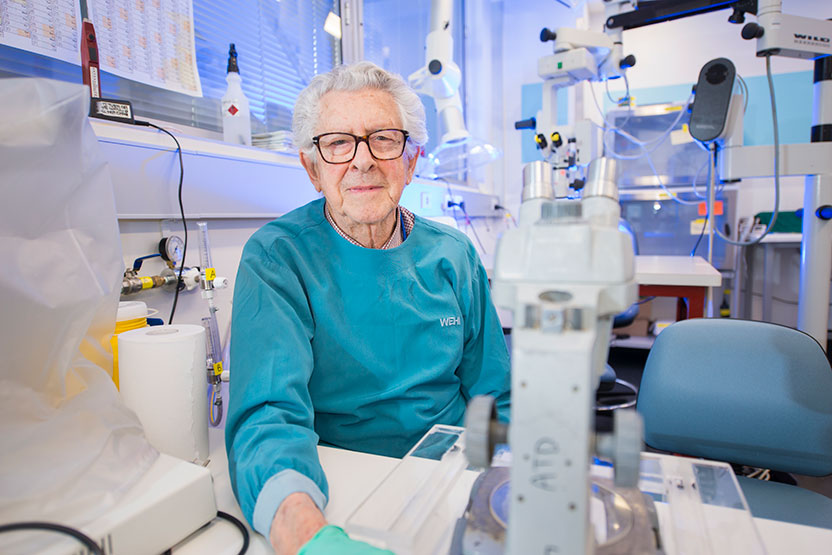
Academy Fellow Professor Jacques Miller is the joint recipient of the 2019 Albert Lasker Basic Medical Research Award, with Professor Max D. Cooper. This prestigious award is often referred to as ‘America’s Nobels’.
Professor Miller of the Walter and Eliza Hall Institute of Medical Research and Professor Cooper of Emory University School of Medicine in the USA are responsible for our current understanding of the adaptive immune system through the identification of B and T cells.
Professor Miller’s work on the role of the thymus gland in the pathogenesis of leukemia in mice led to his major discovery. In 1961 he showed that neonatal thymectomy in mice had profound effects on the development of the immune response in later life. He then developed this discovery with great skill throughout his career, providing insight into thymus tissue and its role in immune response.
Professor Cooper built on Professor Miller’s findings with research of chickens to show that cell-mediated immune responses did not always derive from the thymus, but the bursa of Fabricius. In 1965 and 1966, he published his findings that identified two distinct classes of lymphocytes, B and T cells.
Their work has enabled numerous important advancements in medical science over the last 50 years. Their findings have given rise to a vast range of therapies and products that treat illnesses including cancer, autoimmune disorders and immunodeficiency conditions.
To honour the immense contributions Professor Miller has made to science, the Academy awards the Jacques Miller Medal for Experimental Biomedicine biannually. The award is open to experimental biomedicine researchers eight to fifteen years post PhD, and nominations for the award will open in early 2020 for the 2021 award.
© 2025 Australian Academy of Science